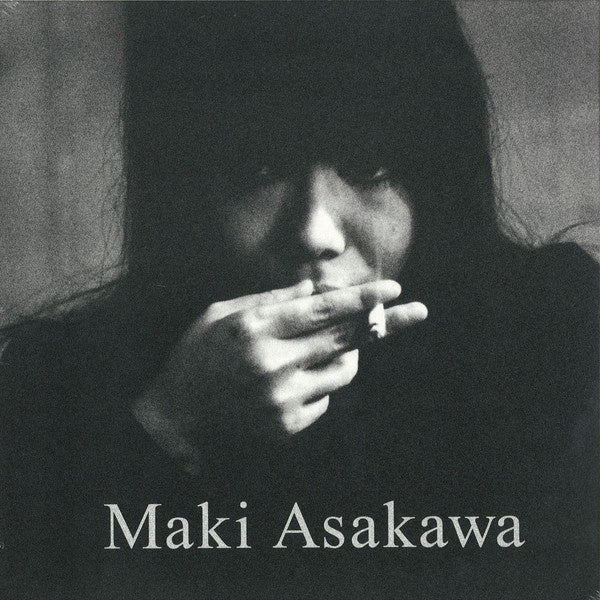Maki Asakawa Maki Asakawa
-
Regular price
-
$55.00 SGD
-
Regular price
-
-
Sale price
-
$55.00 SGD
- Unit price
-
per
Couldn't load pickup availability
About
- The Analog Vault // Essential Listening -
Inspired by the records of Billie Holiday, Nina Simone and Mahalia Jackson - Japanese jazz and blues singer, lyricist and composer Maki Asakawa left her office job to pursue her passion – ultimately culminating in her become an icon for Japanese urban counterculture. She may have started singing in clubs and U.S. military bases, but by the end of her lengthy career, she had close to 30 albums to her name.
This 2015 double LP from UK-based Honest Jon’s compiles many of Asakawa’s finest works from 1969 to 1986. Ranging from the blues and R&B to psychedelia and spiritual jazz, this excellent survey of the Japanese crooner’s discography is filled with moody gems. Standouts include the taiko meets trombone sorrow of “Nemuru No Ga Kowai,” her Japanese-language rendition of Bessie Smith’s “Blue Spirit Blues,” and the sitar-driven chants of “Govinda.” - The Analog Vault
Maki Asakawa (浅川 マキ? Asakawa Maki, January 27, 1942 – January 17, 2010) was a Japanese jazz and blues singer, lyricist and composer.
Born in Mikawa (now part of the city of Hakusan), Ishikawa Prefecture, after graduating high school she worked for a time as a teller in the local national pensions office before moving to Tokyo. Particularly influenced by the styles of Mahalia Jackson and Billie Holiday, she began her career singing at US Army bases and at cabarets.
Asakawa made her debut recording, "Tokyo Banka/Amen Jiro" with Victor in 1967. After appearing in a series of concerts organized by underground playwright Shuji Terayama in 1968, she signed with Toshiba, presently EMI Music Japan, and released the popular songs, 夜が明けたら (Yo ga aketara; At the Break of Dawn) and かもめ (Kamome; Gull) in 1969. Her debut album, 浅川マキの世界 (Asakawa Maki no Sekai; Maki Asakawa's World), was released in 1970.
In addition to writing and composing, she also released cover versions of US traditional folk and blues, freely rendered into Japanese, such as "Asahi no ataru ie (朝日のあたる家)" (The House of the Rising Sun).
She became popular in the 1970s and had made more than 30 releases by the end of the 1990s, after which she was mostly known for performing live.
Asakawa collaborated with musicians such as Yosuke Yamashita and Ryuichi Sakamoto. She continued performing live until the time of her death. Scheduled to perform in Nagoya January 15–17, 2010, she died before her show on the 17th, at the age of 67, of heart failure. – Wiki
Item description:
Artist:
Title:
Maki Asakawa
Label:
Format:
2 × Vinyl, LP, Compilation
Released
2015
Genre:
Jazz, Blues
Style:
Female Vocals, Japanese Jazz
Share
- Regular price
- $55.00 SGD
- Regular price
-
- Sale price
- $55.00 SGD
- Unit price
- per
Couldn't load pickup availability
About
- The Analog Vault // Essential Listening -
Inspired by the records of Billie Holiday, Nina Simone and Mahalia Jackson - Japanese jazz and blues singer, lyricist and composer Maki Asakawa left her office job to pursue her passion – ultimately culminating in her become an icon for Japanese urban counterculture. She may have started singing in clubs and U.S. military bases, but by the end of her lengthy career, she had close to 30 albums to her name.
This 2015 double LP from UK-based Honest Jon’s compiles many of Asakawa’s finest works from 1969 to 1986. Ranging from the blues and R&B to psychedelia and spiritual jazz, this excellent survey of the Japanese crooner’s discography is filled with moody gems. Standouts include the taiko meets trombone sorrow of “Nemuru No Ga Kowai,” her Japanese-language rendition of Bessie Smith’s “Blue Spirit Blues,” and the sitar-driven chants of “Govinda.” - The Analog Vault
Maki Asakawa (浅川 マキ? Asakawa Maki, January 27, 1942 – January 17, 2010) was a Japanese jazz and blues singer, lyricist and composer.
Born in Mikawa (now part of the city of Hakusan), Ishikawa Prefecture, after graduating high school she worked for a time as a teller in the local national pensions office before moving to Tokyo. Particularly influenced by the styles of Mahalia Jackson and Billie Holiday, she began her career singing at US Army bases and at cabarets.
Asakawa made her debut recording, "Tokyo Banka/Amen Jiro" with Victor in 1967. After appearing in a series of concerts organized by underground playwright Shuji Terayama in 1968, she signed with Toshiba, presently EMI Music Japan, and released the popular songs, 夜が明けたら (Yo ga aketara; At the Break of Dawn) and かもめ (Kamome; Gull) in 1969. Her debut album, 浅川マキの世界 (Asakawa Maki no Sekai; Maki Asakawa's World), was released in 1970.
In addition to writing and composing, she also released cover versions of US traditional folk and blues, freely rendered into Japanese, such as "Asahi no ataru ie (朝日のあたる家)" (The House of the Rising Sun).
She became popular in the 1970s and had made more than 30 releases by the end of the 1990s, after which she was mostly known for performing live.
Asakawa collaborated with musicians such as Yosuke Yamashita and Ryuichi Sakamoto. She continued performing live until the time of her death. Scheduled to perform in Nagoya January 15–17, 2010, she died before her show on the 17th, at the age of 67, of heart failure. – Wiki
Item description:
|
Artist: |
|
|
Title: |
Maki Asakawa |
|
Label: |
|
|
Format: |
2 × Vinyl, LP, Compilation |
|
Released |
2015 |
|
Genre: |
Jazz, Blues |
|
Style: |
Female Vocals, Japanese Jazz |
Share

- Choosing a selection results in a full page refresh.





